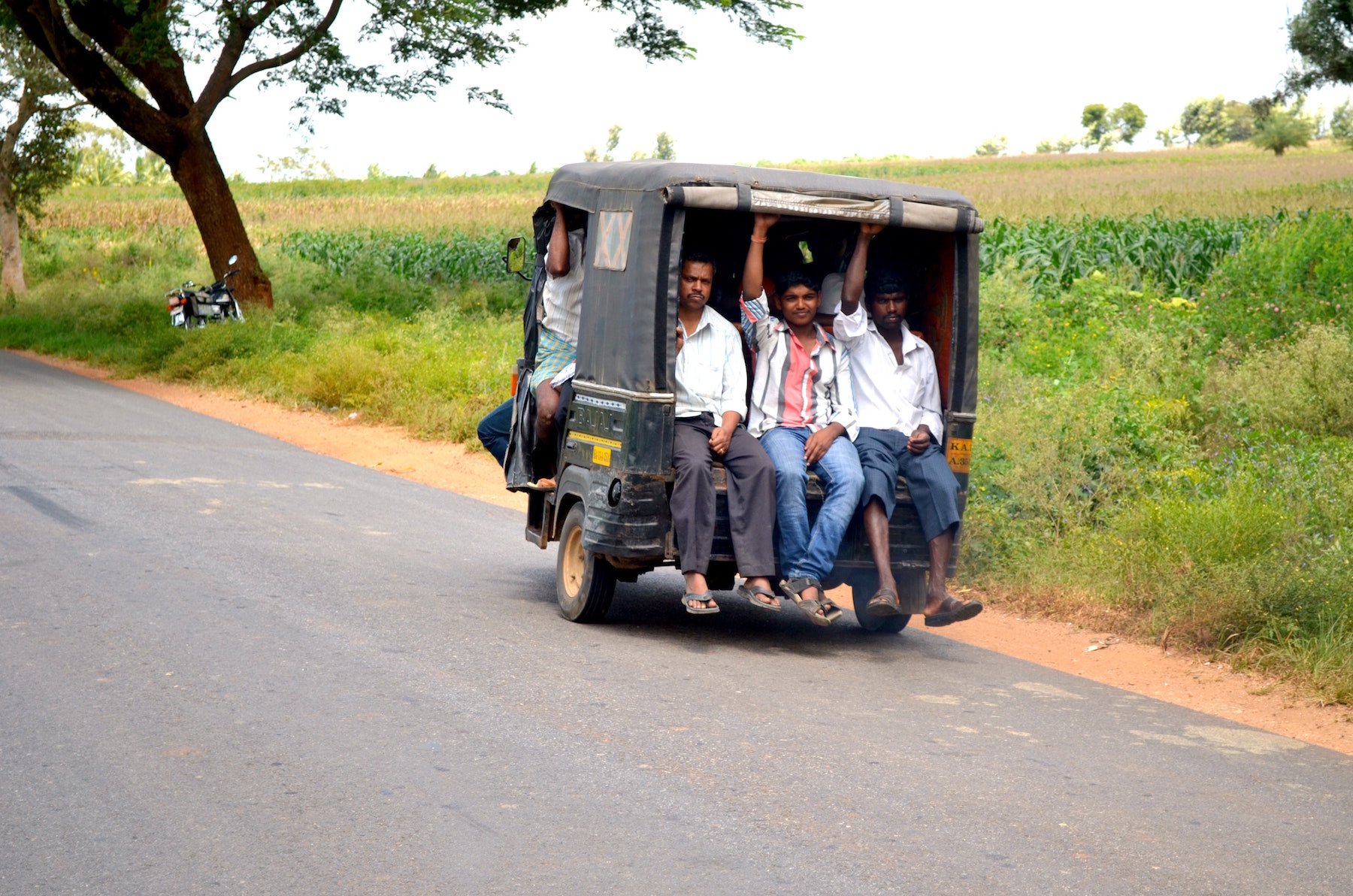

Justice Meenakshi Madan Rai of the Sikkim High Court held that an insurance policy is not expected to cover gratuitous passenger in the absence of payment of additional premium for the same. The decision rendered in United India Insurance Co. Ltd., Shimla v. Tilak Singh and Others clarifies the position that the insurer is not liable to cover the case of a gratuitous passenger.
 The Branch Manager, New India Assurance Co. Ltd. v. Smt. Geeta Khatiwara and Ors, [MAC App. No. 04 of 2020| High Court of Sikkim]
The Branch Manager, New India Assurance Co. Ltd. v. Smt. Geeta Khatiwara and Ors, [MAC App. No. 04 of 2020| High Court of Sikkim]

In the instant appeal under Section 173 of the Motor Vehicle Act, 1988, the decisions rendered by the Motor Accidents Claims Tribunal, North Sikkim at Mangan that directed the New India Assurance Co. Ltd. to pay compensation amounting to ₹95,17,530 with the interest of 7.5% p.a. (vehicle owner) and ₹40,80,000 with the interest of 7.5% p.a. (gratuitous passenger) respectively, were challenged.

The Court was concerned with the question whether the appellant company will be held liable to pay the compensation to the victims as decided by the Tribunal. The answer to the said question would depend on the conclusion of the Court regarding the liability of the appellant company to cover the case of a gratuitous passenger.

Who is a Gratuitous passenger?
The law does not explain: The Motor Vehicles Act, 1988 does not define the expression ‘gratuitous passenger’. However, Section 147(1)(b)(ii) of the Act expressly exempts the case of a ‘gratuitous passenger’ in a goods vehicle in a public place. But gratuitous passenger would mean one who has taken lift.
Section 147 of the Motor Vehicle Act
Section 147(1) of the Act: A bare reading of the Section 147 (1) of the M. V. Act, 1988, indicates that a Policy of Insurance must be a Policy issued by an authorized insurer and insures the person and classes of persons specified in the Policy to the extent specified in sub-Section (2) which is a Statutory Policy.
The proviso to Section 147 (1) of the M.V. Act enumerates the liabilities which are not required to be covered by a Statutory Policy.
Section 147(2) of the M.V. Act, 1988, directs that subject to the proviso to sub-Section (1) a Statutory Policy shall cover the amount of liability incurred except in respect of damage to any property of a third party for which a limit of Rs.6,000/- (Rupees six thousand) only, is specified.
Proviso of subsection (2) of the Act: The proviso to sub-Section (2) discloses that any Policy of Insurance issued with any limited liability and in force immediately before the commencement of the new Act shall continue to be effective for a period of four months after such commencement or till the date of expiry of such Policy whichever is earlier.
Tariff Advisory Committee and IRDA: Till 31.12.2006, the Tariff Advisory Committee and, thereafter, from 1.1.2007, IRDA functioned as the statutory regulatory authorities and they are entitled to fix the tariff as well as the terms and conditions of the policies issued by all insurance companies. Authority of IRDA had stated that on 2-6-1986, the Tariff Advisory Committee had issued instructions to all the insurance companies to cover the pillion rider and of a scooter/motorcycle under the “comprehensive policy” and the said position continues to be in vogue till date.

Statutory Policy: Third-party insurance is what we call Act Policy. And when the insurance covers the person who is paying premium i.e. the owner, it is Package Policy. In this case, the Court first dealt with the difference between “Act Policy” and “Package Policy” by placing reliance on National Insurance Company Limited v. Balakrishnan and Another. In the said case, it was held that a Comprehensive/Package Policy covers the third-party risk with respect to an occupant in a car whereas an Act Policy does not cover it. It had also admitted that the “comprehensive policy” is presently called a “package policy”. It is the admitted position, as the decision would show, the earlier Circulars dated 18-3-1978 and 2-6-1986 continue to be valid and effective and all insurance companies are bound to pay the compensation in respect of the liability towards an occupant in a car under the “comprehensive/package policy” irrespective of the terms and conditions contained in the policy. It is thus clear that a Comprehensive/Package Policy would cover the liability of the insurer for payment of compensation for the occupant in a car, in other words, it covers a third party risk of an occupant in a car. An Act Policy however does not cover a third party risk of an occupant in a car.
Satpal Singh judgment did not cover gratuitous passenger: With respect to the liability of an insurance company to cover the case of a gratuitous passenger, the Court first placed its reliance on New India Assurance Company v. Satpal Singh and Others and subsequently on New India Assurance Co. Ltd. v. Asha Rani and Others. In Satpal Singh case, the Supreme Court opined that the decision was rendered under Section 95 of the Motor Vehicles Act, 1939. That, as per the proviso to the said Section when read with Clause (ii) it is clear that the Policy of Insurance shall not be required to cover liability in respect of the death of or bodily injury to persons who were gratuitous passengers of that vehicle. The provision of Section 95 of the M. V. Act, 1939, was compared to Section 147 of the M. V. Act, 1988. It was concluded as follows;
“11. The result is that under the new Act an insurance policy covering third-party risk is not required to exclude gratuitous passengers in a vehicle, no matter that the vehicle is of any type or class. Hence the decisions rendered under the old Act vis-à-vis gratuitous passengers are of no avail while considering the liability of the insurance company in respect of any accident which occurred or would occur after the new Act came into force.”
Asha Rani judgment reconsidered Satpal Singh: Later, in New India Assurance Co. Ltd. v. Asha Rani and Others, same question arose before the Court and the decision of Satpal Singh case was challenged. In Asha Rani case, the Bench comprising of Justices G.B. Pattanaik, H.K. Sema, and S.B. Sinha compared Section 95 of the Motor Vehicle Act, 1939, Section 147 of the Motor Vehicles Act, 1988 as it stood before the 1994 amendment and Section 147 of the Motor Vehicles Act, 1988 as it stood after the amendment. The bench after discussing the provisions of Section 95 of the Motor Vehicles Act, 1939, Section 147 of the M. V. Act, 1988, prior to its amendment in 1994 and after being amended concluded inter alia that the previous Judgment of the Supreme Court in Satpal Singh (supra) therefore must be held to have been incorrectly decided and the impugned Judgment of the Tribunal as well as that of the High Court were accordingly set aside. It was held that the insurer will not be liable for paying compensation to the owner of the goods or his authorised representative on being carried in a goods vehicle when that vehicle meets with an accident and the owner of the goods or his representative dies or suffers any bodily injury. S. B. Sinha, J., supplementing the decision held that;
“28. An owner of a passenger-carrying vehicle must pay premium for covering the risks of the passengers. If a liability other than the limited liability provided for under the Act is to be enhanced under an insurance policy, additional premium is required to be paid. But if the ratio of this Court’s decision in New India Assurance Co. v. Satpal Singh [New India Assurance Co. v. Satpal Singh, (2000) 1 SCC 237 : 2000 SCC (Cri) 130] is taken to its logical conclusion, although for such passengers, the owner of a goods carriage need not take out an insurance policy, they would be deemed to have been covered under the policy wherefor even no premium is required to be paid.
The Bench concluded that the decision of Satpal Singh case was bad in law and held that:
“Keeping in view the provisions of 1988 Act, we are of the opinion that as the provisions thereof do not enjoin any statutory liability on the owner of a vehicle to get his vehicle insured for any passenger travelling in a goods vehicle, the insurers would not be liable therefor.”
Baljit Kaur Judgment: After Satpal Singh case and Asha Rani case, the Sikkim High Court took note of the decision rendered in M/s. National Insurance Co. Ltd. vs. Baljit Kaur and Others wherein the applicability of Section 147 of the Motor Vehicles Act, 1988 as amended by the 1994 amendment to gratuitous passengers. In the instant case, the Court concluded that even though the owner of goods or his representative are covered by the policy of insurance, the legislature had no intention to extend the liability of the insurer to gratuitous passengers or passengers who were not contemplated at the time of entering into the contract, and no premium was paid for the insurance of such category of passengers.
Tilak Singh Judgment: Lastly, the Court relied upon the decision rendered in United India Insurance Co. Ltd., Shimla v. Tilak Singh and Others. In the said case, the question before the court was “Whether a statutory insurance policy under the Motor Vehicles Act, 1998, intended to cover the risk to life or damage to properties of third parties, would cover the risk of death or injury to a gratuitous passenger carried in a private vehicle?” The Supreme Court, in the instant case concluded that the ratio of Asha Rani case would be applicable to gratuitous passengers in any other category of vehicles and therefore, the insurer is not liable to compensate gratuitous passenger as the insurance policy, being a statutory policy did not cover risk of bodily injury or death to the gratuitous passenger.

The Insurance Policy qualifies to be a statutory policy and not striking the word ‘Package Policy’ is merely a human error. Therefore, the insurance policy will not exceed to cover the case of a gratuitous passenger in case of non-payment of additional premium in that regard. The Supreme Court while considering the law and precedents made a reference to the ratio in Satpal Singh (supra) wherein it was held that under the new Act an Insurance Policy covering third party risk is not required to exclude gratuitous passengers in a vehicle, no matter that the vehicle is of any type or class and observed that the view expressed in Satpal Singh (supra) however has been specifically overruled in the subsequent Judgment of a Bench of three Judges in Asha Rani. From the above prolix discussions, the difference between “Comprehensive/Package Policy” and “Act Policy” have been set out. It is now no more res integra that the insurer will not be liable for paying compensation when a private vehicle meets with an accident and a gratuitous passenger dies as a consequence of the accident. It is clear that additional premium is required to be paid if a liability other than the limited liability provided for under the Act is to be enhanced under an Insurance Policy.


HON’BLE MR JUSTICE MEENAKSHI MADAN RAI
Judge, Sikkim High Court
Photo by Devaiah Mallangada Kalaiah on Unsplash





